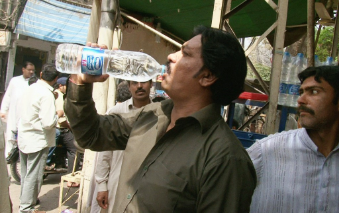Irish Water has been given powers to grab millions of euro from every local authority in the country to help fund upgrades of the network.
But the company and councils are still locked in negotiations over the value of funds to be transferred, despite months of talks.
The money was levied on builders in recent years to help provide water and wastewater services for housing, commercial and industrial developments.
Despite no longer having any role in building new treatment plants, the money remains within the control of councils.
The delay to recoup the cash, which should have transferred last Wednesday, comes as the first water bills begin arriving in people's homes.
More than 100,000 householders have been hit with demands for payment which will be used to fund day-to-day operations and to finance upgrades to water and wastewater treatment systems under an ambitious €1.8bn capital investment programme.
Among the reasons for the delay in transferring the money across include disputes over levies which have been charged but not paid, sources said.
There are also issues around the role that councils will have in collecting outstanding amounts, and what will happen where local authorities allowed developers to repay outstanding amounts over time, and as projects were completed.
The development comes after Environment Minister Alan Kelly signed a vesting order this week which transferred any money "received or due to be received" in development levies by the local authority to Irish Water.
The amounts involved are understood to be substantial - at the height of the boom in 2007, more than €900m was levied in development contributions. Between 2007 and 2008, some 37pc of all levies were used to fund water, wastewater and sewerage works, meaning it is a key source of revenue to help improve the network.
In a statement, Irish Water said it was not in a position to state the amount to be transferred.
"The due diligence exercise to determine the value of development levies received by local authorities that vest in Irish Water is ongoing," it said.
"Therefore, we are not in a position to state the value of development levies that will vest."
Catherine Murphy
Independent TD Catherine Murphy said that levies had been a "critical source of revenue" to fund water upgrades in recent years, and that the delay was among a "long list of failures".
"It has been a critical source of revenue, this is a critically important fund," she said.
"This is on a long list of failures where there hasn't been any thought in terms of what it would take to get Irish Water up and running. I don't think Irish Water will get past the Eurostat test, and I think significant numbers won't pay and I don't think it will survive."
The issue of development levies is among a number of financial matters Irish Water is currently discussing the local authorities.
Another is the question of how much debt will transfer to the utility, money which was borrowed in recent years to fund water and wastewater treatment plants.
Development levies vary by each local authority, but in Dublin City a levy of €57 was charged for each square metre of residential development, falling to €46 per square metre of industrial or commercial building.
Since January last year, councils no longer charge a levy for water services, instead it is charged by Irish Water.










